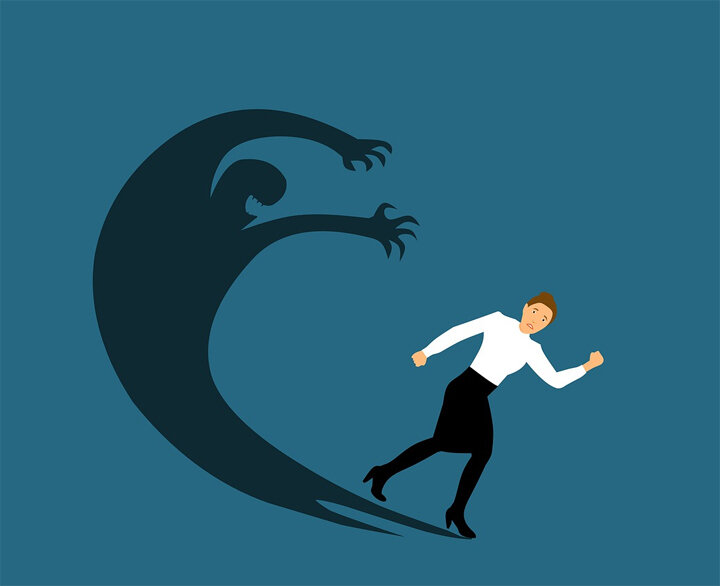Phobias
Do you “freak out” any time you see a snake, or even a picture of a snake? Are you afraid of flying, so much so that you only plan vacations within driving distance of your home? If you are, or if you suffer from a dramatic fear of certain triggers, things, or situations, you may have a phobia.
A phobia is defined as an extreme or irrational fear of something out of proportion to the threat or risk that thing actually presents.
Phobias—like Ophidiophobia, a fear of snakes, and Aerophobia, a fear of flying—are extremely common. In fact, the National Institute of Mental Health has indicated that nearly 10% of adults in the United States have some type of phobia. Getting a realistic idea of how widespread phobias are is difficult, however, as many people simply live with their fear, or try to avoid the triggering thing or situation, rather than seeking official diagnosis or treatment.
Types of Phobias
It is nearly impossible to categorize every type of phobia: after all, people can develop a phobia about any possible situation or thing in the world. Therefore, psychiatrists broadly categorize phobias into three distinct groupings.
Social phobias involve any phobia related to social situations, such as speaking in public, attending a party, or riding public transportation.
Agoraphobia is a fear of places or situations that trigger helplessness or fear.
Specific phobias stem from fear of a specific object or situation. Specific phobias are then broken down into five sub-categories:
Animals (such as spiders, snakes, dogs)
The natural environment (such as fear of the dark, heights, or thunder)
Medical issues (such as needles, blood, vomiting, or falls)
Specific situations (such as flying, driving, or riding an elevator)
Other (such as trypophobia, the fear of holes)
Phobia Symptoms
Everyone has moments of worry and fear. For instance, if you experience extreme turbulence during a airplane flight, you may be temporarily nervous in that specific situation.
A phobia goes beyond situational anxiety, however. A person with Aerophobia, to follow our example, is always anxious about flying, even during a smooth flight. In fact, a person with Aerophobia may be so afraid that they are unable to get onto an airplane. They may even get nervous when seeing an airplane in the sky while they are safely on the ground.
In the presence of the trigger, phobias cause uncontrollable and intense feelings of panic, anxiety, and dread. The reaction can be so intense that it can trigger physical symptoms such as:
Sweating
Dizziness
Difficulty breathing
Rapid heart rate
Tightening of the chest
Shaking and trembling
A choking sensation
Abdominal distress and nausea
Hot or cold flashes
An inability to sit or stand still; an overwhelming desire to escape
Common Treatment Options for Phobias
For many individuals who suffer from phobias, professional therapy or counseling is the best way to treat the phobia. A licensed therapist can help you get to the root cause of the phobia and help you develop coping techniques to manage the feelings of fear and anxiety that accompany the phobia.
Depending on the phobia itself, therapy can take a variety of different forms. However, the most common types of counseling for phobias include:
Cognitive Behavioral Therapy (CBT)
Exposure Therapy
Mindfulness-Based Stress Reduction (MBSR)
Acceptance and Commitment Therapy (ACT)
The common denominator in all of these therapeutic techniques is recognizing and isolating the thought patterns driving the phobia. Because phobias are irrational fears that trigger cycles of negative thinking that are ultimately disconnected from the actual trigger thing, place, or situation, isolating and understanding the negative thinking—and coupling it with a rational recognition of the actual threat, or lack thereof—can result in dramatic decrease in phobic reactions.
Phobias are very real and can be extremely debilitating. The good news is that with hard work and the help of a licensed professional, it is possible to overcome your phobia so that it no longer has a debilitating impact on your well-being.
NEED HELP?
Collaborative Therapeutic Services (CTS) wants to help. We offer a variety of counselling and therapy services, hours, and service providers with diverse specializations. We offer evening & weekend appointments in office or by TeleHealth conferencing.
Have questions? Contact Us Here or Call 813-951-7346. Located in Tampa, Florida. Ask us about our new NEUROLEASE™ TREATMENT THERAPY - A cutting edge treatment for releasing toxic emotions.

